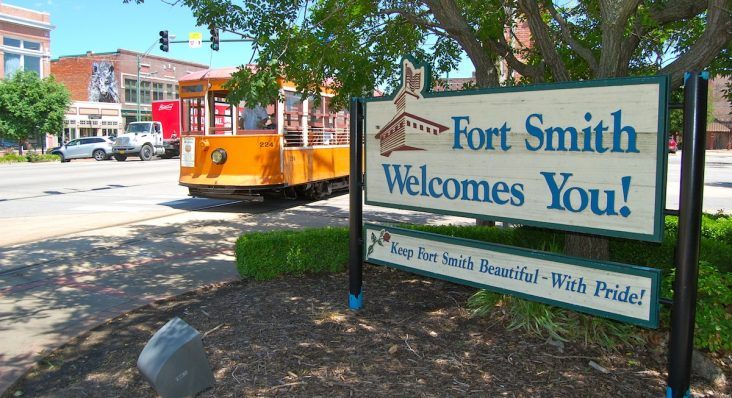Process still slow on gathering signatures for downtown Fort Smith assessment
by November 1, 2021 5:04 pm 741 views

The process of gathering the needed signatures on a petition for property assessment for operation, maintenance and repair and improvements within the Fort Smith Central Business District is proving to be a slow one.
So far, about 21% of property owners in the CBID have signed the petition in favor of the assessment. While that’s more than the 18.5% reported Sept. 21, it is still a long way from the 51% needed to make the assessment a reality.
The CBID board has worked toward a property assessment – primarily in downtown Fort Smith – for almost two years. The board voted in August 2019 to pursue an assessment on downtown business. At the time Hanna said the Fort Smith CBID is one of the few in the state not funded by an assessment.
According to state law, there are two types of assessments that can be levied against real property inside a city’s improvement district – a project/improvement-specific assessment, levied to fund a “specific ‘plan of improvement,’” or a supplemental annual assessment to be used for ongoing operations or maintenance activities, Dingman said. Before an assessment can be levied, property owners who own more than 50% of the property value in the district must sign a petition agreeing to an assessment. There are 479 individual properties in the district, some of which are owned by the same entity.
Dingman said Oct. 28 he has petitions signed by about 21% of the property owners in terms of dollar value of property. Dingman said in September getting signatures from the required number of property owners has been made more difficult because in the past few months some property has changed ownership.
The petition sets the assessment as not exceeding 10 mils. In April, the CBID board voted for a cap of 10 mils on the possible property assessment and to cap any property owner at a maximum $10,000 on assessment. There are about four properties in the assessment area that cap will affect, Dingman said. Commissioners have stated they will decide each year what the coming year’s assessment will be if the assessment passes. The first year’s assessment, which if approved will be 2022, will be 8 mils. The CBID approved a resolution in November for a 6 mil assessment on property in the district. In April, commissioners voted to make the initial assessment 8 mil instead of 6 mil in order to reach the $300,000 they hoped to collect annually.
The CBID plans to use assessment funds to support an ambassador program that would hire off-duty police officers as part of a Safety and Security program for downtown. That program would cost about $136,000 annually, according to a proposed operating budget. The assessment would also fund a Green and Clean project that would include streetscape maintenance and landscaping, which could incorporate care of flowerbeds as well as pruning and possible replacement of trees, cleaning and repairs to benches, lighting and trash receptacles, litter control, conversion of lights along Garrison Avenue to LED and more. The CBID would need about $300,000 to fund both programs, Dingman said.
Based on property values in 2019, each 1-mil assessment on properties within the CBID would amount to $38,834.47 in annual operating revenue. However, that estimate did not take into account any property owned by not for profit agencies or local, state or federal government. Of the land parcels in the CBID, 115 are tax-exempt and have no value assigned to them. These include properties owned by governments, non-profits, churches, etc., according to information provided by the CBID.
The CBID board is expected to address how to proceed or reevaluate the assessment when they meet in November, Dingman said.
